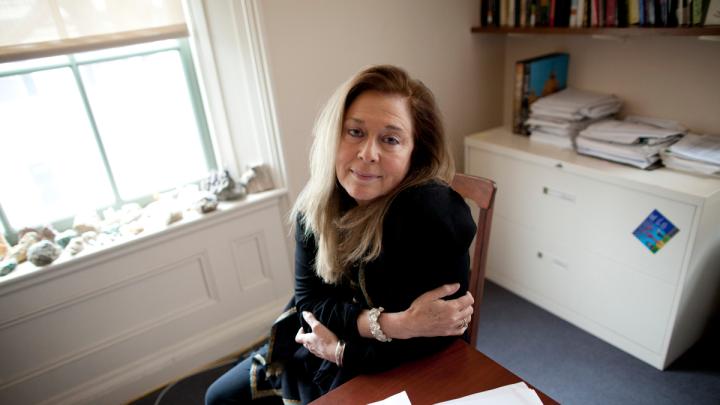The clear, plainspoken voice of William Carlos Williams, recorded at Harvard in 1951, opened the program: “All art is sensual. Listen! Never mind—don’t work it out. Listen to it, let it come to you. Sit back, relax, let the thing spray in your face.…I say don’t attempt to understand the Modern poem; listen to it. And it should be heard: it’s very difficult sometimes to get it off the page….In other words, if it ain’t a pleasure, it ain’t a poem!”
What followed, on the stage of Agassiz Theatre on Sunday, April 29, was “Over the Centuries: Poetry at Harvard (A Love Story),” a kind of envoi for the 2012 Arts First festival. It adhered closely to Williams’s counsel. There was plenty to hear, as a beautifully rehearsed ensemble of 15 students spoke poetry from authors with Harvard connections, stretching from Ralph Waldo Emerson, A.B. 1821, to the present with young contemporary poets like Dan Chiasson, Ph.D. ’01. No book pages rustled; all the performers had memorized their texts.
There was much to see as well, and not only the faces of the performers, which spotlights illuminated at each one’s cue, pulling the speakers, one by one, out of the darkness that shrouded the stage. At times, projected photographs of Harvard- and Radcliffe-affiliated poets appeared behind the cast: Gertrude Stein, A.B. 1898, 1901 classmates Robert Frost and Wallace Stevens, T.S. Eliot ’10, E.E. Cummings ’15, Robert Lowell ’39, John Berryman, Richard Wilbur, A.M. ’47, JF ’50, John Ashbery ’49, Frank O’Hara ’50, Adrienne Rich ’51, Anne Sexton, BI ’63, Elizabeth Bishop, and many others.
The event alternated between recordings of these master voices, either reading poetry or commenting on it, and the live renditions from a clever, intricately designed script that moved through the vast trove of poetry by Harvardians: sometimes only a line or two, sometimes a passage, and at other moments, a complete work. There was plenty of gravitas, but more jocular moments as well. In introducing a reading of his famous poem “Skunk Hour,” for example, Lowell noted that “…my old friend John Berryman, the late John Berryman, said that the skunks were a catatonic vision of frozen terror. But Dick Wilbur said they were cheerful emanations of nature. That’s the advantage of writing in an ambiguous style.” Following the program, the audience received copies of the complete script and a list of the poets and works.
The prime movers of the project included Boylston professor of rhetoric and oratory Jorie Graham and Matt Aucoin ’12, a composer, conductor, and poet. The Woodberry Poetry Room collaborated on the production, along with the Office of the President and the Office for the Arts. Fourteen more poets—undergraduates and graduate students, some with acting credentials—joined in, bringing in favorite lines and poems to begin the winnowing process for the final script. “This began as a deep-reading project,” Graham wrote in the program notes. The process of creating the event, which was part of the celebration of Harvard’s 375th birthday, went on throughout spring semester. Aucoin and another participant, Julian Gewirtz ’13, even collaborated on an op-ed piece in The Boston Globe that ran the day before the event and argued that Harvard ought to strengthen its support for poets and poetry.








